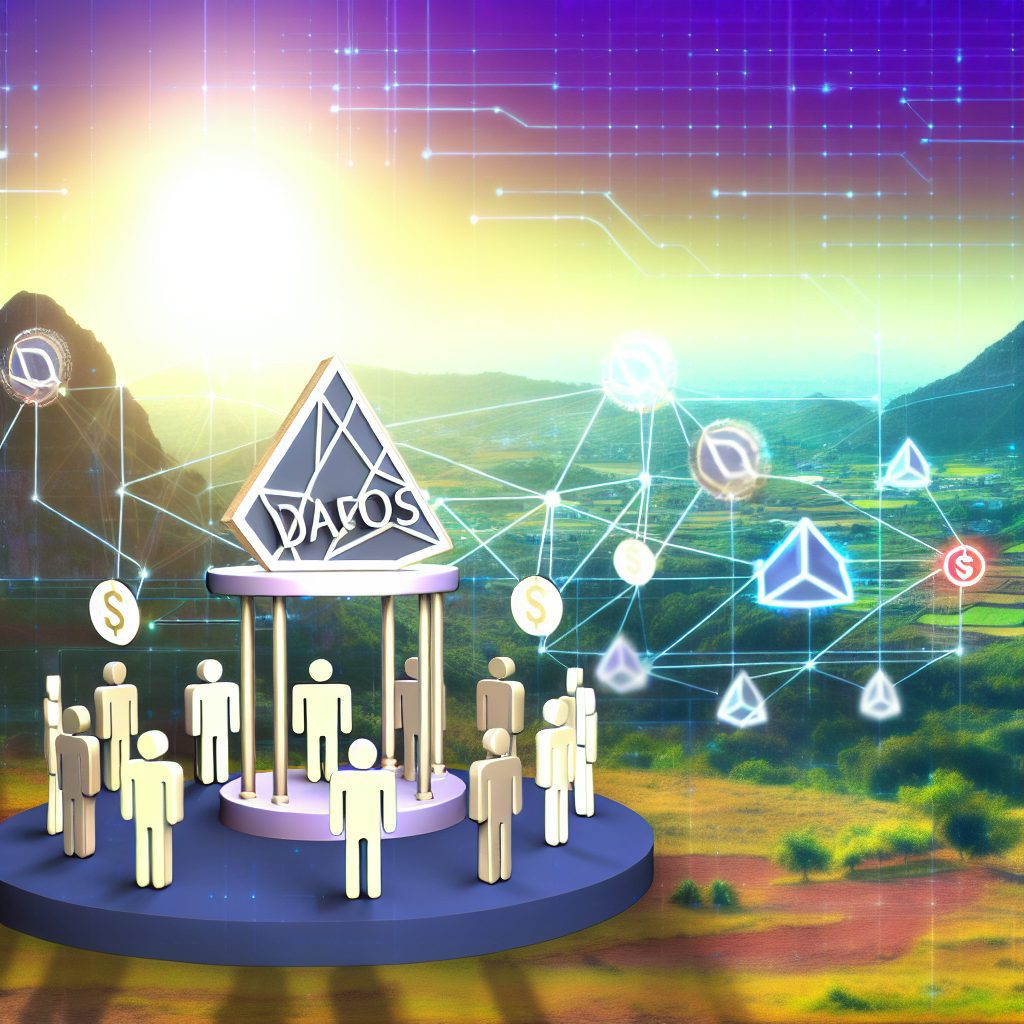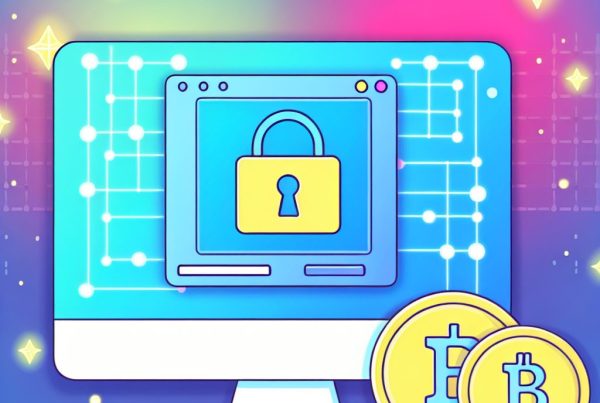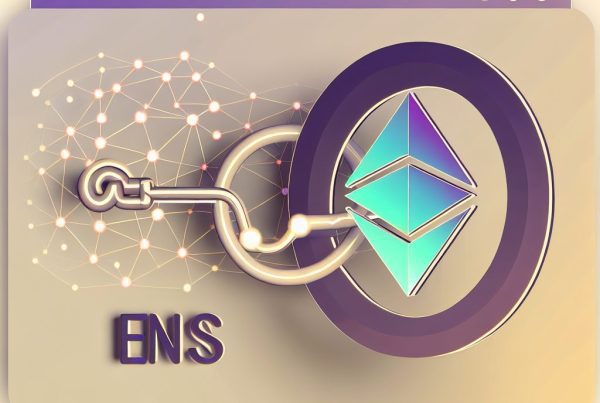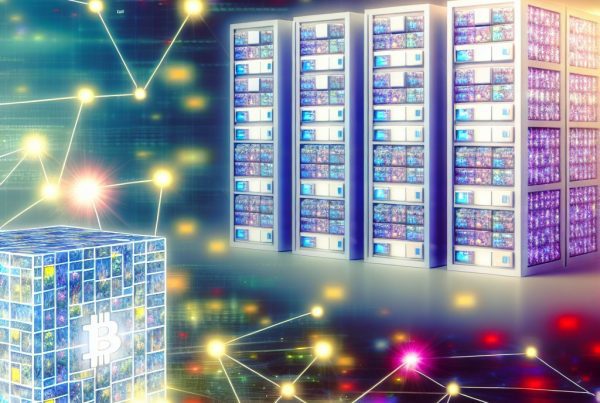Understanding DAO Proposals in the Cryptocurrency Industry
Decentralized Autonomous Organizations (DAOs) have emerged as a revolutionary concept in the cryptocurrency landscape, enabling communities to govern themselves through smart contracts and blockchain technology. At the heart of these organizations lies the DAO proposal, a critical mechanism that allows members to suggest changes, allocate resources, and drive the direction of the organization. This article delves into the intricacies of DAO proposals, their significance, and how they function within the broader context of the cryptocurrency ecosystem.
What is a DAO?
A Decentralized Autonomous Organization (DAO) is an entity represented by rules encoded as a computer program that is transparent, controlled by organization members and not influenced by a central government. DAOs are designed to be fully autonomous and decentralized, relying on smart contracts on a blockchain to facilitate decision-making and governance.
DAOs operate on the principles of transparency, community governance, and collective decision-making. Members of a DAO typically hold governance tokens, which grant them voting rights on proposals and initiatives. This structure empowers individuals to participate actively in the organization’s operations and strategic direction.
The Role of Proposals in DAOs
Proposals are the lifeblood of any DAO. They serve as formal suggestions put forth by members to initiate discussions, allocate funds, or implement changes within the organization. The proposal process is crucial for maintaining a democratic governance structure, ensuring that all voices are heard and considered.
Types of DAO Proposals
DAO proposals can vary widely in their purpose and scope. Here are some common types:
- Funding Proposals: Requests for financial resources to support projects, initiatives, or community events.
- Governance Proposals: Suggestions for changes in the governance structure, including voting mechanisms or membership criteria.
- Protocol Upgrades: Proposals aimed at improving the underlying technology or features of the DAO.
- Partnership Proposals: Suggestions for collaborations with other organizations or projects.
- Community Initiatives: Proposals focused on enhancing community engagement and participation.
The Proposal Process
The process of submitting and voting on proposals in a DAO typically follows a structured approach:

1. Proposal Submission
Members draft a proposal outlining the objectives, rationale, and expected outcomes. This document is then submitted to the DAO for consideration. Many DAOs utilize platforms like Snapshot or Aragon for proposal submissions, ensuring transparency and accessibility.
2. Discussion Phase
Once a proposal is submitted, it enters a discussion phase where members can debate its merits, ask questions, and suggest modifications. This phase is crucial for gathering feedback and refining the proposal before it goes to a vote.
3. Voting
After the discussion period, the proposal is put to a vote. Members cast their votes based on the governance tokens they hold. The voting mechanism can vary; some DAOs use a simple majority, while others may require a supermajority for approval.
4. Implementation
If a proposal is approved, it is executed according to the terms outlined in the proposal. This may involve transferring funds, implementing changes to the protocol, or initiating partnerships.
Real-World Applications of DAO Proposals
Several DAOs have successfully implemented proposals that have significantly impacted their communities and the broader cryptocurrency ecosystem. Here are a few notable examples:
1. MakerDAO
MakerDAO is one of the most prominent DAOs in the DeFi space, governing the DAI stablecoin. Members regularly submit proposals to adjust collateral types, risk parameters, and governance mechanisms. For instance, a recent proposal aimed to diversify the collateral backing DAI by adding new assets, enhancing the stability and resilience of the stablecoin.
2. Compound
Compound is another leading DeFi protocol that allows users to lend and borrow cryptocurrencies. The governance of Compound is managed through a DAO, where token holders propose changes to interest rates, collateral factors, and new asset listings. A notable proposal involved adjusting the interest rate model to better reflect market conditions, ensuring fair compensation for lenders and borrowers.
3. Gitcoin
Gitcoin is a platform that connects developers with funding for open-source projects. The Gitcoin DAO allows community members to propose and vote on funding grants for various projects. A recent proposal focused on increasing the budget for climate-related projects, reflecting the community’s commitment to sustainability and social impact.
Benefits of DAO Proposals
DAO proposals offer several advantages that contribute to the overall effectiveness and appeal of decentralized governance:
- Democratic Participation: Every member has a voice in the decision-making process, fostering a sense of ownership and accountability.
- Transparency: Proposals and voting outcomes are recorded on the blockchain, ensuring that all actions are visible and verifiable.
- Flexibility: DAOs can quickly adapt to changing circumstances by allowing members to propose and vote on new initiatives.
- Community Engagement: The proposal process encourages active participation, strengthening community bonds and collaboration.
Challenges and Considerations
While DAO proposals offer numerous benefits, they also come with challenges that need to be addressed:
1. Voter Apathy
One of the significant challenges facing DAOs is voter apathy. Many members may not participate in the voting process, leading to decisions being made by a small subset of active participants. This can skew the governance process and undermine the democratic principles of the DAO.
2. Proposal Quality
The quality of proposals can vary significantly. Some may lack sufficient detail or feasibility, leading to wasted time and resources during the discussion and voting phases. Establishing clear guidelines for proposal submissions can help mitigate this issue.
3. Governance Token Concentration
In some DAOs, governance tokens may be concentrated in the hands of a few individuals or entities, leading to potential centralization of power. This can undermine the democratic nature of the organization and create conflicts of interest.
Future of DAO Proposals
The future of DAO proposals looks promising as more organizations adopt decentralized governance models. As the cryptocurrency industry continues to evolve, we can expect to see:
- Enhanced Tools: Development of more sophisticated tools for proposal creation, discussion, and voting, making the process more user-friendly.
- Integration with Traditional Governance: Exploration of hybrid models that combine decentralized governance with traditional organizational structures.
- Increased Regulation: As DAOs gain prominence, regulatory bodies may introduce frameworks to govern their operations, impacting how proposals are managed.
FAQs about DAO Proposals
What is the purpose of a DAO proposal?
The purpose of a DAO proposal is to suggest changes, allocate resources, or initiate projects within the organization, allowing members to participate in governance and decision-making.
How are DAO proposals submitted?
DAO proposals are typically submitted through dedicated platforms where members can draft, discuss, and vote on them. Each DAO may have its own submission process and guidelines.
What happens if a proposal is rejected?
If a proposal is rejected, it does not move forward to implementation. Members can revise the proposal based on feedback and resubmit it for consideration in the future.
Can anyone submit a proposal in a DAO?
Generally, any member holding governance tokens can submit a proposal, although some DAOs may have specific requirements or thresholds that need to be met.
How do DAOs ensure transparency in the proposal process?
DAOs ensure transparency by recording all proposals, discussions, and voting outcomes on the blockchain, making them accessible and verifiable by all members.
Conclusion
DAO proposals are a fundamental aspect of decentralized governance, enabling community members to actively participate in shaping the direction of their organizations. As the cryptocurrency industry continues to grow, understanding the intricacies of DAO proposals will be essential for anyone looking to engage with these innovative structures. By fostering democratic participation, transparency, and community engagement, DAOs represent a significant shift in how organizations can operate in the digital age.
For more insights into the cryptocurrency world, including news and price tracking, visit Bitrabo. Stay connected with me on social media: X, Instagram, and Threads.
Disclaimer: This article is for informational purposes only and should not be considered financial advice. Always conduct your own research before making investment decisions.
The Crypto Watchlist of the Week 🔎
Subscribe to receive expert-curated projects with real potential—plus trends, risks, and insights that matter. Get handpicked crypto projects, deep analysis & market updates delivered to you.


